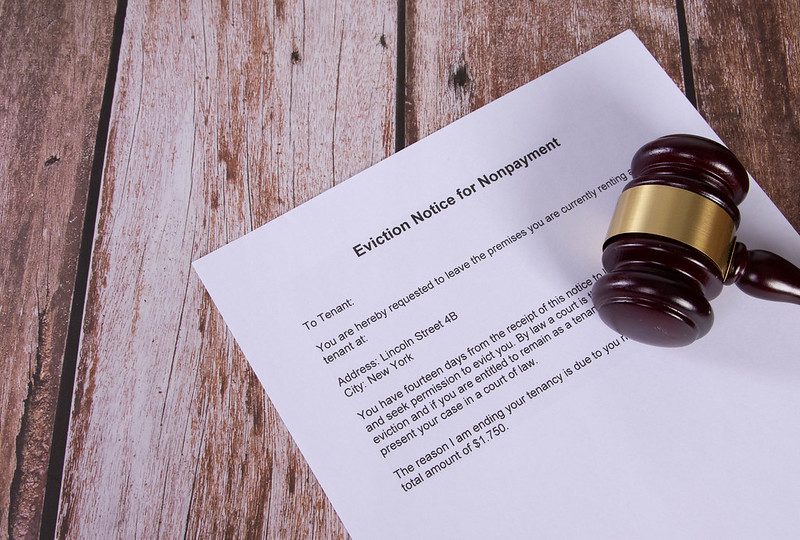The eviction process is a delicate and regulated procedure that landlords must handle carefully.
When managing rental properties, landlords occasionally face the challenge of initiating the eviction process. According to a report by the Apartment Association of Greater Los Angeles, California has one of the lowest eviction rates in the country. California had 2.2 eviction filings per 100 rental homes. These are pre-COVID numbers.
An eviction notice is a crucial step in this process, formally informing tenants about the termination of their tenancy. If you’re in California, consult the guidelines for the eviction process in California to ensure compliance.
While each jurisdiction might have specific regulations and requirements for eviction notices, landlords can follow some universal tips to ensure the eviction notice is appropriately prepared and effectively serves its intended purpose.
Understanding the Eviction Process
Before diving into the tips for preparing a reasonable eviction notice, it’s essential to understand eviction. Landlords use the eviction process to reclaim possession of their property from tenants who have violated their lease agreements or failed to comply with local rental laws. This process typically begins with the issuance of an eviction notice and could last from a few weeks to over a year.
Crafting a Well-Structured Eviction Notice
A well-prepared eviction notice can significantly impact the success of the eviction. To ensure your notice is adequate and legally sound, consider the following six tips:
Research Local Laws
Before drafting a notice, familiarize yourself with California’s process and notice requirements. Understanding the legal aspects will help prevent any procedural errors that could delay eviction.
Clear and Concise Language
The notice should use clear and straightforward language to convey its purpose. Avoid using overly technical jargon that tenants might struggle to comprehend. It is important to specify the reason for eviction, the date by which the tenant must vacate the premises, and any remedial actions that must be taken.
Include Relevant Details
Provide essential details in the notice, such as the tenant’s name, the property’s address, and lease details. Including these specifics helps avoid confusion and ensures the notice is directed to the correct recipient.
State the Reason

Clearly state the reason for the eviction in the notice. Whether it’s due to non-payment of rent, violation of lease terms, or other breaches, specifying the cause helps tenants understand the grounds for their eviction. It provides them with an opportunity to address the issue.
Comply with Notice Periods
Different jurisdictions often have varying notice periods that landlords must adhere to. Ensure you know your area’s legally required notice period and include it in the eviction notice. This gives tenants adequate time to respond or make the necessary arrangements.
Serve the Notice Properly
Proper service of the notice of eviction is crucial for its validity. Follow the legal methods outlined in your jurisdiction to deliver the notice to the tenant. These methods include personal delivery, certified mail, or posting the notice on the rental property.
Seek Legal Advice
While these tips provide a general guideline for preparing a notice of eviction, it’s important to consult legal counsel before taking any eviction-related action. The laws surrounding eviction processes can be complex and vary significantly depending on location.
Landlords can seek legal advice to ensure their actions fully comply with local laws and regulations.
Final Thoughts
The eviction process is a delicate and regulated procedure that landlords must handle carefully. An eviction notice is a crucial component of this process, serving as the initial step toward regaining possession of a property.
By understanding the eviction process, crafting a well-structured notice, and adhering to legal requirements, landlords can confidently navigate the eviction operation and ensure a smoother resolution.
Remember, seeking legal guidance when dealing with eviction matters can help you avoid potential pitfalls and legal complications, ultimately protecting your rights.


Join the conversation!